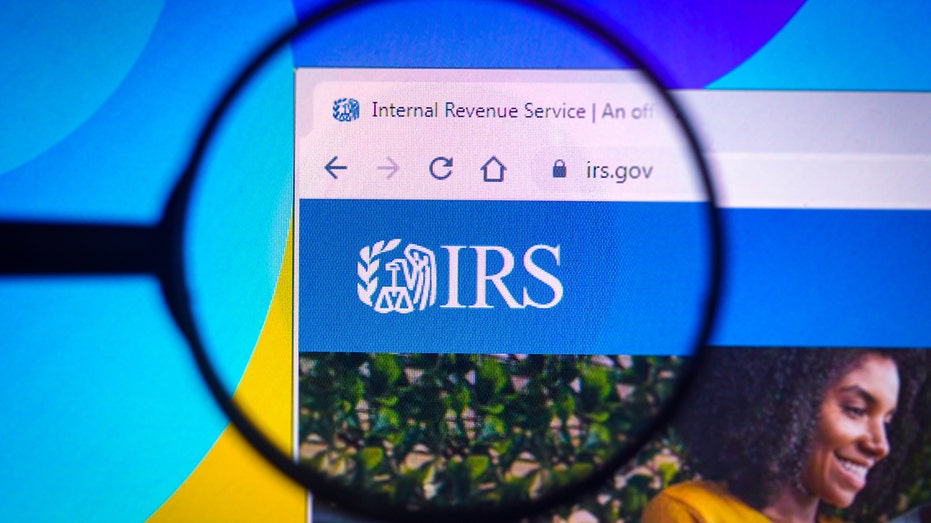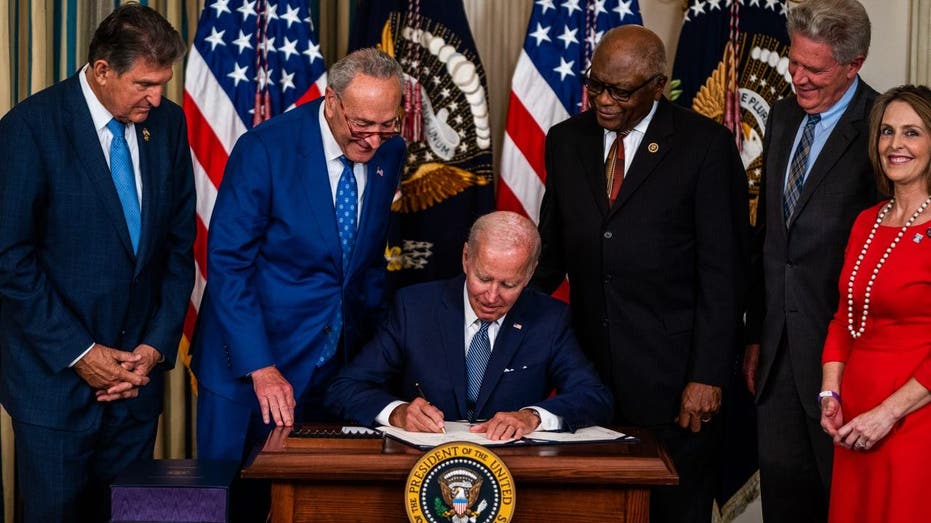House GOP to vote on bill blocking IRS hiring spree
The GOP bill would clawback IRS funds Democrats provided under their Inflation Reduction Act.
Kevin Hassett blasts new IRS tax-reporting rule: The IRS is buying the option to harass all Americans
Former Chair, Council of Economic Advisers Kevin Hassett discusses the IRS postponing its tax rule on Venmo and PayPal payments over $600 and concerns of overreach on 'Kudlow.'
House Republicans are poised to vote on a bill that would block the Internal Revenue Service (IRS) from hiring thousands of additional agents to enforce tax policies under the Democrats' Inflation Reduction Act that was enacted last Congress.
The bill – which is expected to be the first legislation the new GOP majority in the House considers after the adoption of the rules package – is known as the Family and Small Business Taxpayer Protection Act. It was introduced by Reps. Adrian Smith (R-Neb.) and Michelle Steel (R-Calif.), and would rescind funds that were earmarked for the IRS to hire additional personnel under the $739 billion Inflation Reduction Act.
"The last thing the American people need right now are more audits from an out-of-control, bloated IRS. The Inflation Act funding for IRS would lead to the hiring of 87,000 new IRS employees tasked with raising enough revenue to pay for Democrats’ Green New Deal priorities," Rep. Smith said in a statement to FOX Business. "This is unacceptable, which is why Rep. Steel and I are leading the House of Representatives in a bill to rescind this spending. Our bill leaves in place funding for customer service and IT improvements because IRS is in desperate need of reform, but it protects middle-class families from audits they cannot afford."
TRUMP TAX RETURNS: IRS HOBBY RULES PUT $1.1M OF DEDUCTIONS AT RISK

In this photo illustration, the homepage of the Internal Revenue Service (IRS) website seen on a computer screen through a magnifying glass. (Photo Illustration by Rafael Henrique/SOPA Images/LightRocket via Getty Images / Getty Images)
The Inflation Reduction Act provided a total of $80 billion in funding for the IRS – including $45 billion for hiring more personnel – to step up its enforcement of tax policies and, in turn, collect more tax revenue from Americans. The increased revenue helped offset the bill's spending on climate and social policies so that the bill could avoid raising deficits when the Congressional Budget Office (CBO) estimated its impact. Had the bill been found to raise deficits, it would've jeopardized the privileged status under budget reconciliation rules that allowed Democrats to pass it on party-line votes.
"The Administration’s $45 billion plan to hire 87,000 new IRS agents and target Americans with a flood of audits was absurd from the start, especially as families and small business owners struggle under skyrocketing prices brought on by reckless government spending," said Rep. Steel in a statement to FOX Business. "As a lifelong tax fighter, I am proud to introduce this legislation with Rep. Adrian Smith to rescind the funding for the Biden Administration’s reckless attack on taxpayers and see it voted on as our new Majority’s first order of business. Republicans are hitting the ground running to deliver on our promises to American families."
NEW IRS TAX BRACKETS TAKE EFFECT IN 2023, MEANING YOUR PAYCHECK COULD BE BIGGER

WASHINGTON, DC August 16, 2022: US President Joe Biden signs into law H.R. 5376, the Inflation Reduction Act of 2022 (climate change and health care bill) in the State Dining Room of the White House on Tuesday August 16, 2022. From left, Sen. Joe Man (Photo by Demetrius Freeman/The Washington Post via Getty Images / Getty Images)
President Joe Biden signed the Inflation Reduction Act into law in August and pledged that the bill wouldn't result in additional audits on households and small businesses earning less than $400,000.
Treasury Secretary Janet Yellen reiterated that promise in a directive stating that "any additional resources — including any new personnel or auditors that are hired — shall not be used to increase the share of small business or households below the $400,000 threshold that are audited relative to historical levels." Based on the language of this directive, while the relative share of audits on taxpayers below $400,000 may not rise, the total number of such audits of such taxpayers may increase in line with the overall increase in tax enforcement audits.
CITADEL'S KEN GRIFFIN SUES IRS OVER ‘UNLAWFUL’ TAX RETURN LEAK

The Capitol is seen on Election Day in Washington, Nov. 8, 2022. After months of primaries, campaign events and fundraising pleas, today's midterm elections will determine the balance of power in Congress. (AP Photo/J. Scott Applewhite / AP Images)
In August the CBO wrote to then-Rep. Kevin Brady (R-Tex.) and Rep. Jason Smith (R-Mo.) to inform the lawmakers that under its analysis, IRS compliance with Yellen's directive would reduce revenue collection by $23 billion over a decade, resulting in an increase of over $180 billion in tax revenue in that period. The CBO assessed that a rejected amendment offered by the GOP to include a legislative restriction on audits of taxpayers with incomes under $400,000 would have reduced revenue collection by an additional $4 billion.
Under the Inflation Reduction Act as enacted, the CBO assessed that "an increase in revenues collected from taxpayers with income less than $400,000 (as reported both before and after any enforcement activities take place) will constitute a small fraction of the total increase collected from all taxpayers".
GET FOX BUSINESS ON THE GO BY CLICKING HERE
However, the CBO noted that for taxpayers with income under the $400,000 threshold, "Audit rates at roughly historical amounts, in accordance with the Treasury Secretary's directive, will boost audit activity and thus revenues relative to the amount in CBO's July 2021 baseline."
Over 1K IRS agents being ‘willfully delinquent’ on their tax returns is ‘inexcusable’: Sen. Joni Ernst
Sen. Joni Ernst, R-Iowa, weighs in on reports that 1,250 IRS employees were delinquent on their tax bills despite the agency’s latest endeavor to hire 87,000 new agents on ‘Varney & Co.’





















